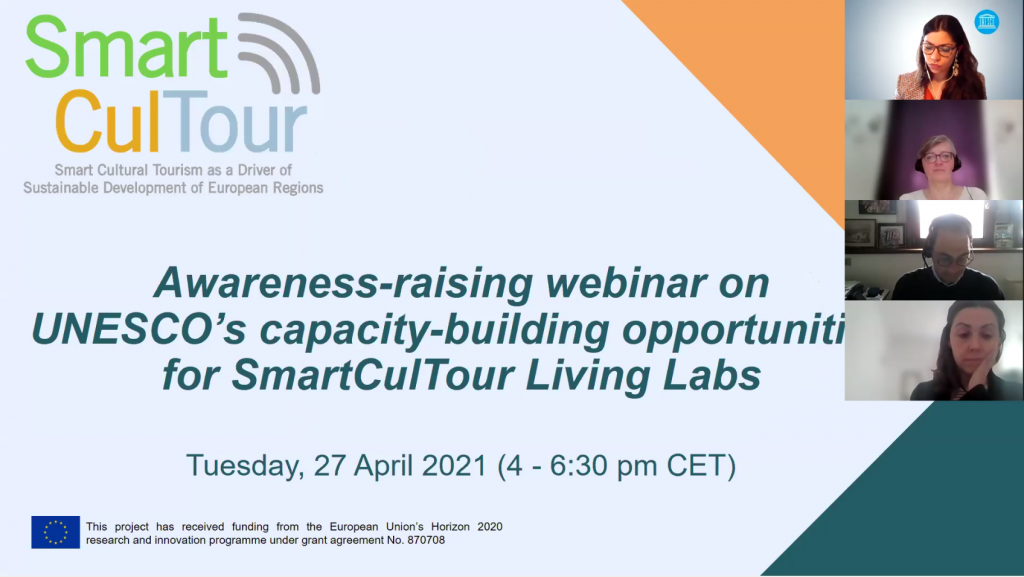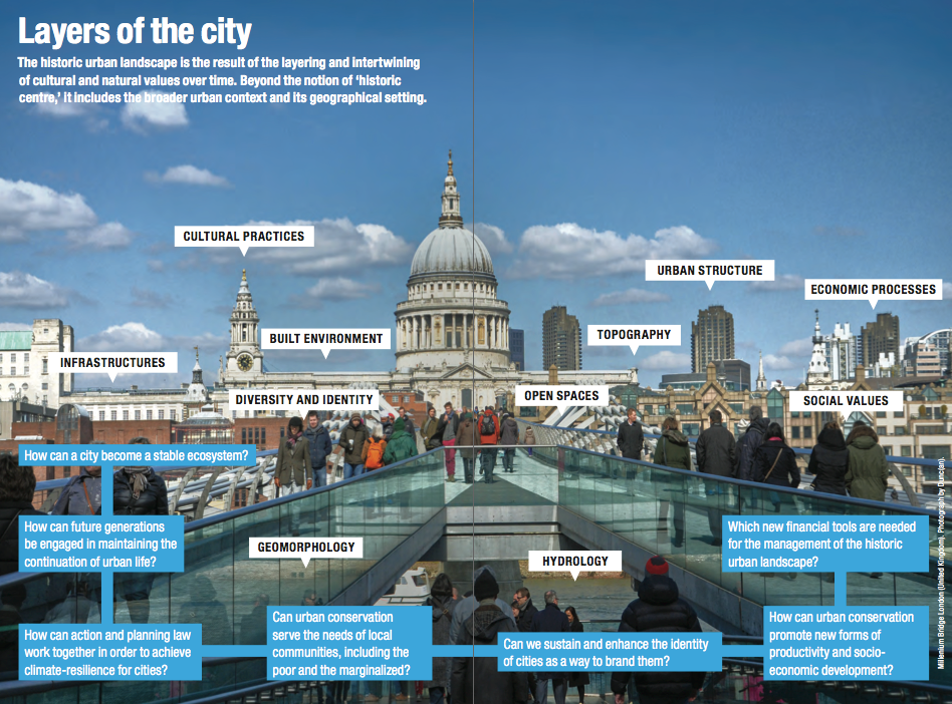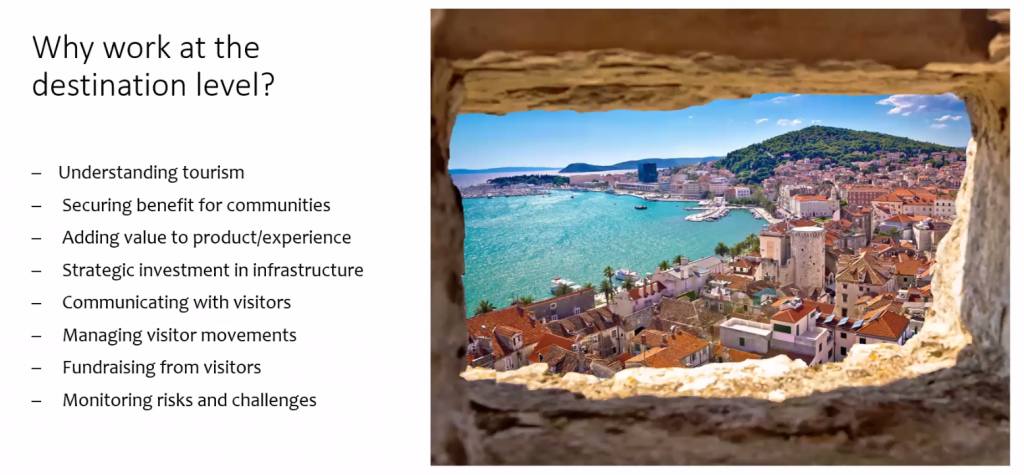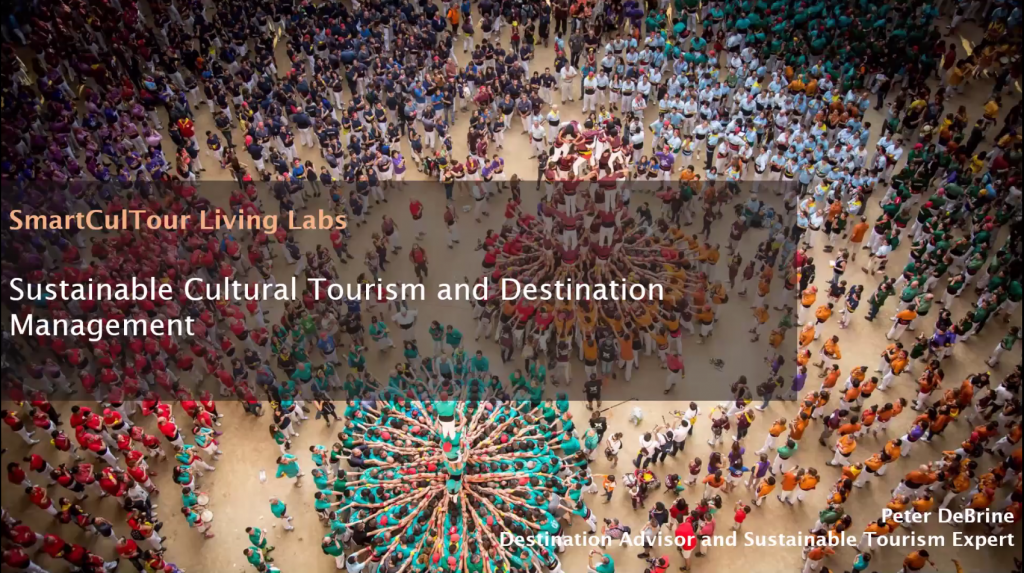As Leader of Work Package 6 on “Sustainable cultural tourism laboratories (Labs)”, UNESCO coordinates the six SmartCulTour Living Labs (LLs), including by providing support in the identification of meaningful activities, methodologies and interventions to be implemented in each of them. Within this framework, UNESCO is also responsible for raising awareness and developing capacities of concerned stakeholders for the implementation of relevant international standards, using the methodologies and tools developed in the framework of the Organization for sustainable cultural tourism management and development.
Such mission appears even more relevant in face of the impact of the COVID-19 pandemic, which has provoked a rapid decline of tourism in most countries, affecting the ability of cultural sites, attractions and experiences to function properly. The situation remains volatile with different countries and regions experiencing a different scenario of impact and recovery.
Concurrently, the COVID-19 pandemic has provided momentum to rethink existing models and steer post-COVID efforts towards cultural tourism that defines the destination, whilst reflecting UNESCO’s values and providing benefits to communities. The rebound of tourism should be an opportunity to spur innovation and test new approaches to support communities in the recovery, transforming destinations away from outdated and unsustainable models.
Since the early days of the COVID crisis, UNESCO has been working on the identification of new measures for a responsible and sustainable restart of cultural tourism, in the conviction that destination management will need to adapt, and knowledge sharing and learning will be needed to allow for more resilient responses from local communities.
Destinations should be able to shape their respective tourism systems, customising them to balance competitiveness with the needs and priorities of local communities and the sustainability of cultural resources, through a comprehensive Build Back Better (BBB) vision.
To stimulate discussion on these subjects, while informing LLs’ stakeholders about the different capacity-building opportunities that UNESCO will offer them throughout the project’s lifespan, UNESCO organized on 27 April an online Awareness-raising webinar on UNESCO’s capacity-building opportunities for SmartCulTour Living Labs (recording is available here). Attending participants included SmartCulTour Consortium partners, Lab Managers, and local stakeholders from the six Labs.
This awareness-raising webinar was intended to give participants an overview of the tools, measures and approaches that UNESCO has developed to support the sustainable management of cultural resources at territorial level, with a focus on cultural tourism development, and an outlook towards the post COVID-19 recovery. In particular, the panellists presented some specific UNESCO’s methodological approaches that can be functional to the sustainable integration of culture and tourism into local development interventions, and notably introduced UNESCO’s vision on sustainable and resilient cultural tourism, the Historic Urban Landscape (HUL) approach, and UNESCO’s programme on Intangible Cultural Heritage (ICH).
To complement the webinar, an additional presentation was made available by UNESCO on its approach to sustainable destination management, alongside concrete tools supporting its design and implementation (recording is available here).
Following up to these activities, UNESCO has planned a series of bilateral consultations with all Living Labs, to further discuss specific needs and priorities and identify tailored capacity-building activities to be implemented. Capacity-building actions will start at the end of the year and are expected to run throughout 2022. They will address local skills gaps, aimed at empowering local stakeholders by equipping them with the knowledge and tools that may support the planning and design of interventions contributing to the sustainable development of cultural tourism at the destination level, both within and beyond the lifecycle of the Labs. Each capacity-building package will be designed in accordance to the local cultural resources that are more relevant to the Living Lab destination and its local community, adopting a two-folded approach towards protecting cultural and social values while promoting sustainable and inclusive economic growth.
Download the programme of the webinar here
Watch the Awareness-raising Webinar:
Watch the lecture on UNESCO’s approach to sustainable destination management:





